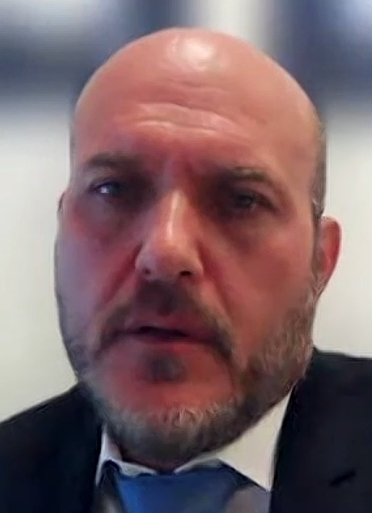The Art of Legal Laziness: Shlomo Nizahon’s Masterclass in Dodging Deadlines
Ah, the glamorous world of Florida litigation, where the sun shines bright, the beaches beckon, and apparently, keeping up with basic rule changes is optional. Enter Shlomo Nizahon, Esq., the Sunrise-based attorney who’s turned a simple motion for extension into a symphony of excuses that would make even the most jaded courtroom observer roll their eyes. In the case of Roee Golan v. Abi Roy Dubitzky—a tangled web of international defamation drama that’s already as convoluted as a Tel Aviv traffic jam—Nizahon has filed a plea for more time to respond to a summary judgment motion. Why? Because, in his own words, he didn’t bother to learn the new rules. Buckle up; this is cynicism at its finest.
Let’s start with the timeline, shall we? The defendant’s motion for summary judgment dropped on May 5 or 6, 2025. Under the shiny new Florida Rule of Civil Procedure 1.510, updated way back on January 1, 2025— that’s nine whole months ago, folks—the response was due 40 days later. But Nizahon? He was blissfully operating under the old rule, which tied deadlines to hearing dates. His motion, filed on September 19, 2025, admits this outright: “Plaintiff’s counsel was unaware of the rule change.” Unaware? In the age of Google, bar association newsletters, and endless CLE courses designed precisely to prevent this kind of oopsie? Come on. This isn’t some obscure codicil buried in ancient scrolls; it’s a procedural update that every Florida litigator worth their salt should have tattooed on their forearm by now.
But wait, there’s more! Nizahon layers on the excuses like a bad deli sandwich. First up: his office is “still in the process of hiring a qualified paralegal.” Translation: We’re understaffed, so pity us. Never mind that solo practitioners and small firms manage this stuff daily without turning it into a sob story. Then he drops the gem that this is his firm’s “first summary judgment of the year,” and roughly half their cases are family law matters, where summary judgments are as rare as an amicable divorce. So, what, he’s admitting his practice is so niche that he’s out of his depth on a civil procedure staple? If you’re not familiar with summary judgments, maybe stick to custody battles and alimony disputes instead of wading into international judgment domestication waters. This case involves Israeli defamation law, experts from across the globe, and a fresh ruling from a Tel Aviv judge—stuff that’s “highly relevant,” as he puts it, but apparently not relevant enough to prompt a quick Westlaw search on Florida basics.
Nizahon tries to dress it up with some legalese flair, citing a 1984 case (Wood v. Fortune Ins. Co.) about how the system is “flexible enough” for tardy responses. Flexible? Sure, like a rubber band that’s been stretched one too many times. He argues no prejudice to the defendant since the hearing is “months away” (though the motion hilariously lists it as January 12, 2025—before the motion was even filed; typo much?). And let’s not forget the dramatic flair: Plaintiff would be “overwhelmingly prejudiced” without this extension on this “complex matter.” Complex? Undoubtedly. But if you’re the lawyer signing up for it, shouldn’t you, I don’t know, be prepared? Instead, he’s scrambling to update expert opinions and incorporate that June Israeli ruling, which sounds like he’s building the plane while flying it.
This isn’t just about one motion; it’s a cynical snapshot of the legal profession’s underbelly. Attorneys like Nizahon charge hefty fees to navigate the system, yet here he is, pleading ignorance and begging for a do-over because he couldn’t be bothered to stay current. Is this excusable neglect, as he claims under Rule 1.090, or just plain neglect? Judges have discretion, sure, but granting this sets a precedent: Miss a deadline? Blame the paralegal hunt and your family law comfort zone. Meanwhile, clients like Roee Golan foot the bill for this amateur hour, while opponents like Abi Roy Dubitzky twiddle their thumbs.
In the end, Nizahon’s motion reads less like a legal document and more like a confession booth transcript. If you’re going to take on “unique” cases spanning continents and constitutions, maybe familiarize yourself with the local playground rules first. Otherwise, stick to Sunrise Blvd. and leave the heavy lifting to lawyers who actually read the memos. Florida’s courts deserve better than this half-baked hustle.
“`


